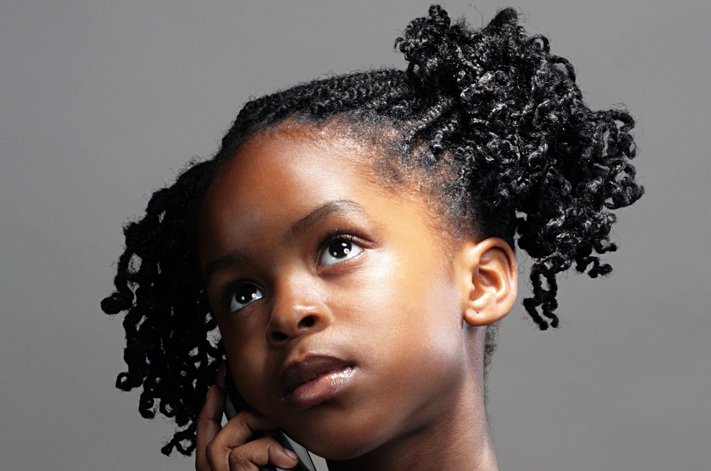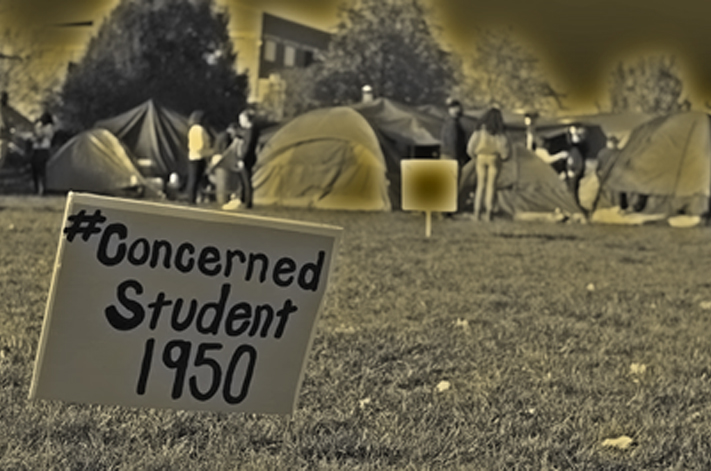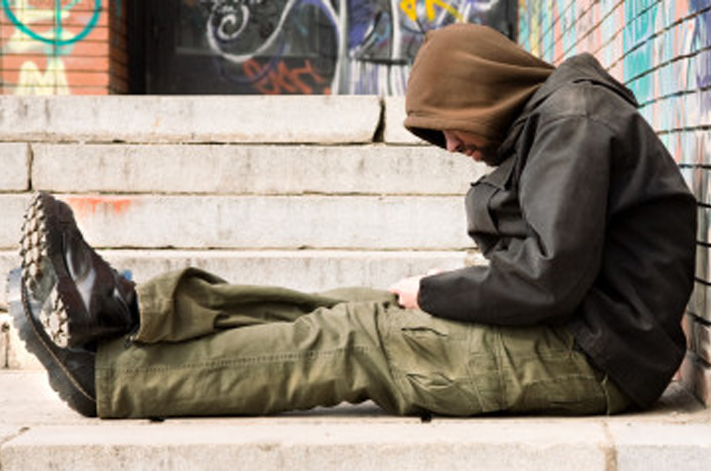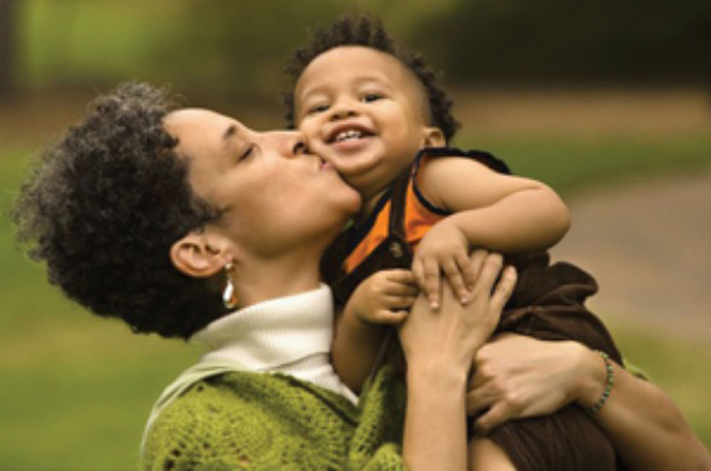Project Description
'Mop headed white boy, or mixed race Black boy? Very often, white people made that decision for me.'
Now, let me be clear: This essay is not about Rachel Dolezal pretending to be Black, nor is it about whether Shaun King is Black. This essay is about being Black, in a white world, under a white media lens.
White on Paper
So there are questions about Shaun King’s race based on a police report that lists him as white. This has little to do with his race, and everything to do with institutionalized racism. It’s most likely that an officer was filling out a form, and decided he was white because it wasn’t worth it to actually ask the question.
The first time I remember it was in 5th grade, when I was told I needed to erase two of my three selections in the Race column. I had checked White, Black, and Native American. Why wouldn’t I? I was all three. But when I refused, my white teacher did it for me, and erased Black and Native American from my race.
Let the metaphorical implications of that last sentence sink in for a moment.
In the context of a society founded and run on institutionalized dominance, the question of whether someone is “right” (in color, sex, culture, gender, ability, etc.) is answered by the dominant demographic. That answer comes entirely from the relevance of the dominant demographic, from their desires.
Not from the person being categorized.
In a patriarchal society, I get to define whether a woman’s dress is appropriate based on how I want her to dress. In a straight society, I get to define whether another man’s relationship to men is appropriate based on my understanding of sex and gender.
And in a white society, white people get to define when someone is Black based on how they want to see Black people at that moment in time.
The decision that I was white was his, not mine. My white teacher could define my race in any way he wanted merely because it was convenient.
And before you argue that choosing someone’s race out of convenience wouldn’t happen, it has. When I transferred from the Army to the Navy, I was told that my race was going to be changed from Black to white because it was listed as white on a different form (which I had not filled out) and that it “would be easier if they matched up.”
Again, let that sink in. That is how little I am worth. My culture, and my history, and my family are less important than the convenience of one piece of paper matching another piece of paper.
The US military, the global protector of justice and democracy, changed my identity. All because someone didn’t feel like filing an extra piece of paperwork.
So what were you saying about Shaun King’s police report listing him as white?
A Very White Child with Red, Curly Hair
As if family is any confirmation at all of someone’s race. As if people like Shaun King, and myself, and Lacey Schwartz have families that fit into nice, conservative white preconceptions of what is racially appropriate or even possible.
In her blog post, Vicki Pate, states that
“After Shaun called me a racist and a liar on his blog for outing him about his various scams, I decided to research him on a personal level, I’ve never believed him to be black….”
Because, as we’ve established, she gets to decide his race. In this case, her decision is based on her own desire for personal revenge.
She later states
“Fast forward to last night . . .after about a month of not checking the facebook pages of his family, I decided to look at his brother’s facebook page. . . . Instead I found something his brother posted last month . . . a photo of Shaun as a child . . . a very white child with red, curly hair.”
Who the hell do you think you are to define him because of his hair?
But in reality, Pate is doing something everyone does — me included, though I don’t like to admit it. All of us, at least occasionally, mentally define other people’s races based on what we want to see.
People have done this to me my whole life. Since the days when I looked like that mop-headed boy in fifth grade to the time my in-laws were re-defining me based on their unwillingness to accept that their daughter would marry a Black man. I don’t fit into people’s — primarily white people’s — preconceptions of what it means to be Black, so they decide that I am not Black or, “not really Black,” or #NotBlackEnough.
I can’t speak for other demographics, but I can say that Black people deal with this little chestnut all the time. Shaun King is dealing with it, I deal with it, my fair-skinned younger sister deals with it, my son will deal with it.
My daughter will even have to deal with it differently than her twin brother because my daughter is, in the words of Vicki Pate, “a very white child with red, curly hair.”
In the past, my daughter would have been called “passing.” Meaning that she’s still Black, still “wrong,” but she’s impersonating “right.” Apparently, now it might be convenient for people to change the rules and say she’s white without regard to her history or self-identity, to say that she’s impersonating Black.
Shall we, just because it’s convenient in an argument, devalue the race, family, and history of a person– my daughter, Shaun King, anyone — because of red hair and light skin? Will someone like Pate want revenge against my daughter and pull up pictures of her to state that she can’t be my real daughter, or that she is not a twin to her darker-skinned brother?
(Later on, maybe, we’ll talk about how damn frustrating it can be to be any race, ethnicity, or culture other than lily white in America.)
But for the sake of argument, let’s assume that Shaun King is white.
Even so: he is doing good. Like Rachel Dolezal, our “Black Performer” Shaun King is at the head of an organization dedicated to the improvement of Black lives. Meanwhile, most white people are silent about the disenfranchisement of Black people in America. Most white people actually consent to Black disenfranchisement and Black murders because they are silent.
But Shaun King (again, assuming that he is white) is not silent. In fact, he has become so vocal about his support of Black lives, so active in helping Black people attain respect and equality, that he actually identifies with the oppressed people he helps.
Isn’t this why we love movies like Dances with Wolves and Avatar? They capture our imagination (as well as Best Picture) because they have The White Savior — white people deciding to help an oppressed people and coming to identify as that people. We write Sir Walter Scott’s Waverley over and over again because we love that story so much.
But for some reason, when it becomes real life, and that person is with actual Black people who are actually fighting racism — we need to destroy that person. Because apparently, nothing should survive in this society if it doesn’t support the dominant system of white supremacy.
When Do We Stop Being Black?
Vicki Pate, in her “investigative reporting,” found a picture of the apparently white man she says is Shaun King’s father and cites this as “proof” that “Shaun King is white.”
I submit a thought experiment: A woman is born to a white mother and Black father. This woman grows up to have snow-fair skin, flowing reddish hair, and green eyes.
Is she allowed to identify as Black?
Then, suppose that she marries a white man. They have children, who, like their mother, have snow white skin and blue/green eyes.
By the implicit rules set forth by people like Vicki Pate, are those children allowed to identify as Black?
Do the woman, and the children, have the right to define their own race?
Or, as we have seen, is her race the decision of white people looking at photographs — white people who don’t care about, and actually want to vilify, her?
Which rules apply to my nieces and nephews, to my own children? Are they subject to the One-Drop Rule? Are they subject to the Pate “Your parent’s picture looks white” rule? Are they subject to a moving rule based on the convenience of someone filling out a form?
When will my father’s people stop being Black? When are we allowed to identify as Black? Who decides if we are Black?
What does it even mean to be Black?
These are complex questions that are difficult to answer. But, they are our questions to answer. Because the question of what it means to be Black is a Black question, full stop.
People are Dying
Our media, as proxy of our society, is inherently racist. I say that because there is little to no risk in destroying Black positivity — in fact, it’s easy, and it sells. Similarly, there is little to no benefit in promoting Black positivity. Black people are media props in destructive stories about destructive people who can’t get their act together. Media figures who attack Black people are safe, protected, and sought after.
By contrast, Blacks who say even the most insignificant things about racism even existing are easily attacked. I know, because I posted a rather insignificant speech saying little more than “racism actually exists,” and was threatened by people who said things like they were going to rape my two-year-old daughter.
That’s the world we live in. There is very little risk in saying “Black people are inherently bad.” But there is great risk in saying “Black Lives Matter.”
Shaun King said that, and thus his right to his own life, his history, his family’s story, his credibility, was forfeited.
If Shaun King is really Black, then the media backlash against him proves nothing more than society is racist and doesn’t give a damn about Black lives. That’s bad enough, but nothing more than what Black folk already know.
But if Shaun King, as his attackers wish, really is white, then that’s actually much worse. Because a white Shaun King is proof that the media, and society, would actually destroy a family to prevent a white person from helping Black people.
And that, my friends, is pretty much the definition of White Supremacy.
John Metta is a writer. He pretty much lives in a notebook with my fountain pen. John Metta says of himself, “I also write things that make computers do stuff.”
This piece was reprinted by EmpathyEducates with permission or license. We thank the Author, John Metta for his kindness, for speaking, and for inviting an open, honest, more complete and connected conversation. We also wish to express our appreciation for Medium‘s, Those People and Curator, Felicia Megan Gordon.












